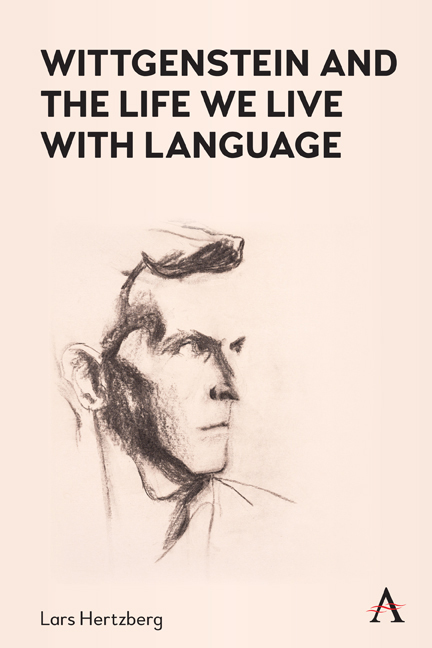Book contents
- Frontmatter
- Dedication
- Contents
- Acknowledgements
- Introduction
- 1 Attending to the Actual Sayings of Things
- 2 The Sense Is Where You Find It
- 3 On Excluding Contradictions from Our Language
- 4 ‘How Do Sentences Do It?’
- 5 On the Need for a Listener and Community Standards
- 6 ‘It Says What It Says’
- 7 Very General Facts of Nature
- 8 Ethics as We Talk It
- 9 Moral Escapism and Applied Ethics
- 10 Reasons to Be Good?
- 11 The Importance of Being Thoughtful
- 12 What’s in a Smile?
- 13 On Aesthetic Reactions and Changing One’s Mind
- Bibliography
- Index
8 - Ethics as We Talk It
Published online by Cambridge University Press: 15 September 2022
- Frontmatter
- Dedication
- Contents
- Acknowledgements
- Introduction
- 1 Attending to the Actual Sayings of Things
- 2 The Sense Is Where You Find It
- 3 On Excluding Contradictions from Our Language
- 4 ‘How Do Sentences Do It?’
- 5 On the Need for a Listener and Community Standards
- 6 ‘It Says What It Says’
- 7 Very General Facts of Nature
- 8 Ethics as We Talk It
- 9 Moral Escapism and Applied Ethics
- 10 Reasons to Be Good?
- 11 The Importance of Being Thoughtful
- 12 What’s in a Smile?
- 13 On Aesthetic Reactions and Changing One’s Mind
- Bibliography
- Index
Summary
Are Ethical Judgements Nonsense?
Wittgenstein's reticence concerning questions in moral philosophy is a famous theme. It is often linked to the remarks in Wittgenstein's only sustained treatment of ethical issues, the ‘Lecture on Ethics’, where he makes the claim that the attempt to put absolute value into words is a violation of the conditions of sense. However, the idea that there is a direct connection between these two matters is not unproblematic. For one thing, if the idea of the nonsensicality of judgements of absolute value precluded his writing or speaking about ethics, the lecture itself ought not to have come about. Or put it like this: in giving the lecture he showed that he thought one could talk about talk about ethics – and there's no reason why he should have abstained from doing that in the future, in analogy with talking about talk about the mind, meaning, etc.
For another thing, his views about nonsense certainly changed during his career, so whatever would have constituted a reason for not talking about ethics in the period up until 1930 would not have stayed the same during the 30's and 40’s.
It's also very hard to know what to make of his claim, in the ‘Lecture’, that absolute value judgements cannot be made. He imagines two dialogues. In the first, someone is told his tennis game is not much good; he shrugs off the criticism by saying that he does not care about playing any better – in which case, supposedly, the critic will say, ‘Ah then that is all right’. In the second dialogue, someone says ‘You’re behaving like a beast’ and the other person answers ‘I know I behave badly, but then I do not want to behave any better’. According to Wittgenstein, it would here be out of the question for the first person to respond by saying that in that case it is all right. Rather, he suggests, the first person's response would be: ‘Well, you ought to want to behave better.’
There is of course a distinction to be made between telling a person there is something she has to do if she wants to bring about certain results, and telling her there is something she has to do regardless of her goals.
- Type
- Chapter
- Information
- Wittgenstein and the Life We Live with Language , pp. 129 - 142Publisher: Anthem PressPrint publication year: 2022

